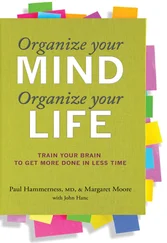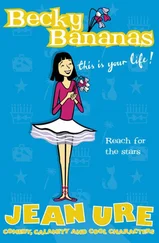“Lovely,” says Harriet. “Not too vigorous, you’ll be glad to know. And how did your business go?”
“So far, so good,” she says nonchalantly, slipping into her pullover.
“Well, that’s exciting.”
Caroline looks at her strangely. “Is it?”
“Why, of course it is. When were you going to tell me?”
“Tell you what exactly, Mom?”
“About the house.”
“I was going to talk to you about it at dinner tonight,” she says, sliding into her jeans.
“Who’s actually going to live in the house, dear?”
“Whoever buys it, I guess. There’s really no way of knowing, Mom.”
“Well, I assume Skip’s buying it. You can’t afford it on your salary, can you?”
Caroline looks momentarily stricken as she lowers herself next to Harriet in the love seat. “Oh, Mom,” she says pityingly. “No, you don’t understand. Those are comps.”
“Comps?”
“Comparably priced houses.”
“Comparable to what? Are you getting your real estate license, dear? That’s wonderful.”
“No, Mom. These places are all priced comparably to yours. They’re all three bedroom, two baths, on two to five acres that have sold in the past six months. They’re all with fifteen miles of your house.”
“I’m afraid I still don’t understand.”
“Dwight says the market is rebounding and that it may not last. In fact, he thinks the bottom may drop out again any day.”
A cold hand seizes Harriet’s heart. “Dwight?”
“Mom, just listen to reason, here.”
Harriet’s got a mind to stand up and walk out of the room. But she fears her knees will give out if she stands.
“You’re sitting on nearly a half million dollars if you sell now. It’s time to list it, Mom.”
Stonily silent, Harriet turns her face to the veranda as this new, more sinister revelation settles in.
When Caroline sets a consoling hand on Harriet’s knee, she brushes it off like a tarantula.
March 25, 2006 (HARRIET AT SIXTY-NINE)
Admit it, Harriet, deep down, you’re just a little disappointed it’s Caroline and not Skip coming to visit you on this glorious Saturday in early spring. And make no mistake, it is glorious. You could reach out and touch the mountains. The birds are atwitter, as they flit about your garden. You’ll eat at the patio table, where already it’s pushing seventy degrees.
Yet Caroline’s imminent arrival troubles you. Too bad Mildred and Clark have canceled at the last minute — again. Too bad Bernard is not likely to move from his roost in front of the television all afternoon, where he cycles endlessly among collegiate football, PBS, and the History Channel.
Still, you’re determined to give Caroline the benefit of the doubt and make this a nice visit. You prepare a roast, with new potatoes and carrots, and you bake a cake, lemon chiffon. You clean the kitchen and bathroom, you dust, you make up the guest room and arrange flowers, hellebore and bleeding hearts. Everything is perfect.
Ah, but it never is, is it, Harriet? Your daughter arrives with gin on her breath, prickly as a saguaro. Nails bitten to the quick.
Brunch conversation is one-sided: Caroline’s litany of woes. Another lay-off. Another boss screwing her out of her unemployment benefit. At fifteen, Cassidy is threatening to move out of the house. She’s dating a twenty-year-old thug with an ace-of-spades tattoo on his neck. The kid is practically living with them. She ought to start charging them rent. Really, she’s harboring a runaway.
Of course you know what’s coming. It always comes, trailing Caroline like a fog of gin. Before your wayward daughter can muster the nerve to be direct, you’re already reaching for your checkbook, though not, of course, before Bernard has retreated to the television with his plate. Not because Bernard would disapprove (though he might) but because Caroline still somehow manages to be proud.
Seven hundred dollars. Last time it was eight. Six months ago, it was a thousand. And what does this money buy you? Not even peace of mind. Not even a phone call once a month. But you write the check, you always write the check. In the memo line you write “gift.” She’s your daughter, Harriet. You tell yourself that her problems are still your responsibility, even at thirty-eight. Who knew that one phone call from New Mexico all those years ago would mark the beginning of a long pattern, a legacy of trouble and expense, of bailouts and rescues and interventions?
It breaks your heart to watch her struggle. You want nothing more than happiness for your daughter. You’d do anything to make that happen. But today you finally draw the line, Harriet.
Hours after the check has been written, the plates have been cleared, and the conversation has (at times) even managed a certain level of ease, who do you find at the hallway desk, stealthily rummaging through your purse, rifling through your credit cards like a professional?
The thing that surprises you, now and later, is your calmness. Not so much as a vent of steam from Mount St. Harriet. One word, three letters is all, its meaning delivered with such clarity, such finality, such gravity, that it elicits no comeback or defense whatsoever.
Out. As in, O-U-T. As in, completely out — out of your house, out of your life, and as much as possible, out of your thoughts and prayers.
When Bernard ambles into the kitchen for a snack a half hour later and wonders what happened to Caroline, you give him the skinny. He nods. As always, he shares your prejudice. You can’t help but wonder if he knows the truth.
It will be nearly four years, and seven steps, before you hear from Caroline again, when she calls you on Easter morning to make her amends.
August 22, 2015 (HARRIET AT SEVENTY-EIGHT)
The Crow’s Nest is almost tasteful, with its burgundy club chairs and panoramic views. The light is subdued, but cheerful, the temperature perfect, the chatter so polite as to be but a pleasant murmur beneath a tinkling of silver and glassware. Tonight Harriet’s club soda tastes colder.
On a stool before the gaslit hearth, a handsome young man with a thick, lustrous head of hair and Scottish brogue (or maybe Irish), strums an acoustic guitar to the tune of “Danny Boy.”
Under the circumstances, Harriet is finding it hard to maintain her anger. It’s possible, she’s forced to admit, that Caroline actually has her best interest in mind. Viewing her life from some distance, Harriet can see how her situation might look to her daughter: osteoarthritis, dented side panels, phantom WD-40 cans. All that house, all that yard, all those stairs. And there she is, pushing eighty years old, brittle-boned and stooped, two hours from her nearest relative. Yes, from this vantage, Harriet can see why there might be legitimate cause for concern. And for the first time, she’s touched by her daughter’s solicitude. Tonight Harriet is willing, once again, to give Caroline the benefit of the doubt. She’s earned it.
“Just have a glass of wine, Mom. Don’t worry about me.”
“No, dear, I’m fine.”
But a glass of wine sounds awfully good.
“Seriously, Mom. Just enjoy yourself. I’m around booze all the time.”
“Fine, then. I’ll order a glass.”
Harriet’s glad Caroline talked her into it. The sweet white wine is a perfect accent to the velveteen air of the Crow’s Nest, a perfect complement to the sad, sweet longing of “Cockles and Mussels.” What’s more, Caroline seems perfectly comfortable with it. In fact, between sets, she flags the passing waitress and orders Harriet another glass, which is quite thoughtful if not a little surprising, all things considered, though Harriet has a sneaking suspicion she knows who will be picking up the tab. But what’s a few dollars, next to peace and tranquillity with her daughter?
Читать дальше












